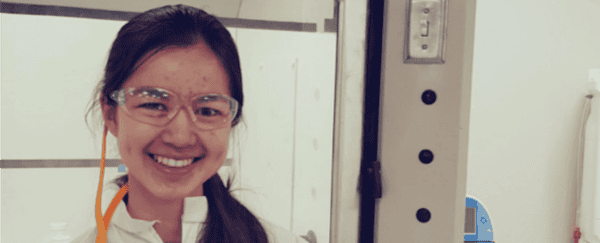Dominique shares about her career and education in manufacturing engineering.
Dominique // Senior Industrialization Engineer, Rockwell Automation
 I developed an interest in science at a very young age. I was in the 6th grade, and, being from Ohio, we used to have the Ohio practice tests. I was a pretty decent student, so it was just another period of testing for us.
I developed an interest in science at a very young age. I was in the 6th grade, and, being from Ohio, we used to have the Ohio practice tests. I was a pretty decent student, so it was just another period of testing for us.
When results came back, I didn’t do so well on the science test. I’m the type of person who doesn’t like to fail. I took this as a challenge for my little self in sixth grade to defeat science. I delved into any extracurricular activity and class that had to do with science.
In high school, I was part of the robotics club and had an internship with Wright-Patterson Air Force Base (AFB) that I got through the science fair. Science was woven into my DNA at a very young age and my interest evolved since then. I was determined that the test was not going to defeat me.
When it came to looking for colleges, I knew I wanted to do engineering. I was leaning towards Materials Engineering at the time. I was able to get a full scholarship from Central State University, which is where I earned my degree in Manufacturing Engineering.
Why Manufacturing Engineering?
Manufacturing engineering spoke to me because I knew I would have a lot of opportunities simply because everything is manufactured. You can’t wake up and touch something that has not been manufactured or gone through some sort of manufacturing plant.
I thought that if I went into this field, I would learn the basics of pretty much anything and be able to use those skills throughout my life. I felt like the skills I would learn in that degree would be a great mix that I would be able to take on in future roles. At Central State University, I took courses in electrical, mechanical, and materials engineering. My courses weren’t tied to just one subject, which has been beneficial in my professional career.
Every summer in college, I had an internship. I didn’t want to say “no” to an opportunity. The more experience you can get, the better off you will be when it’s time to get a job after college. My first internship was with Boeing in Huntingdon, California. I worked in a materials test lab.
It was an amazing experience because of the location and because of the fact that I was jumping right into what I always wanted to do. I was designing, creating, and destroying different materials. I learned processes and gained hands-on experience that a textbook can’t give you.
My next internship was with UTC. I worked with their power team and we launched a huge Lean Six Sigma process. We re-processed one of their manufacturing plants. That was my first experience with Lean Six Sigma, which, for manufacturing engineering, is one of the most necessary processes that you can learn and be certified in. Getting that exchange early on was just an awesome opportunity.
Following that, I did some research work during school, also with Wright-Patterson AFB. I also did some research projects with NASA.
Staying in touch with the industry and staying up to date with the latest and greatest technology taught me to put the hard work in now, which will benefit me in the future. With any free time I had, I was looking at what research I could do and what job I could get, just to make my resume that much more ready for the real world.
Manufacturing Engineering: A Day in the Life
I’m currently a Senior Industrialization Engineer at Rockwell Automation. I’m basically the liaison between product development and the manufacturing plant. I get to implement new and continuing products into the plant.
I’m the engineer that creates the process for how we’re going to build the product, making sure it’s a safe and lean process, ready for the plant. I like having such an impact on our company, seeing our products come to life. We start from raw materials and we then have to figure out the best way to put these products together in high quantities.
My degree goes hand-in-hand with what I do today. In my classes, we learned the fundamentals of processing. Processing and creating go hand-in-hand with manufacturing a sellable product that is ready to go out to our customers.
I learned just enough in multiple fields to know what’s going on with many teams at the company and have good input for our conversations. My degree really supports my current job. I can’t create the manufacturing process if I don’t know manufacturing best practices.
My advice to young women interested in manufacturing engineering is go for it! Don’t let the male-dominated environment deter you from trying it. There are so many opportunities, especially if you’re one who likes to solve problems. It’s not just about putting things together. We’re solving problems, creating new ideas, and making new devices. Everything around us is manufactured.
As I mentioned earlier, there’s not something that you can wake up and touch today that is not manufactured. The opportunities are endless, whether you want to go into automobiles, electrical devices, or makeup. It’s all manufactured. Even if you have an interest that’s not particularly related to STEM, I can guarantee it’s probably manufactured somewhere.
Related Content:
- A Day in the Life of Architectural Engineer Hailey B. Ihlow
- Day in the Life of a Petroleum Engineer: Dr. Shawn Simmons
- Day in the Life of a Marine Engineer
Author
-

SWE Blog provides up-to-date information and news about the Society and how our members are making a difference every day. You’ll find stories about SWE members, engineering, technology, and other STEM-related topics.






